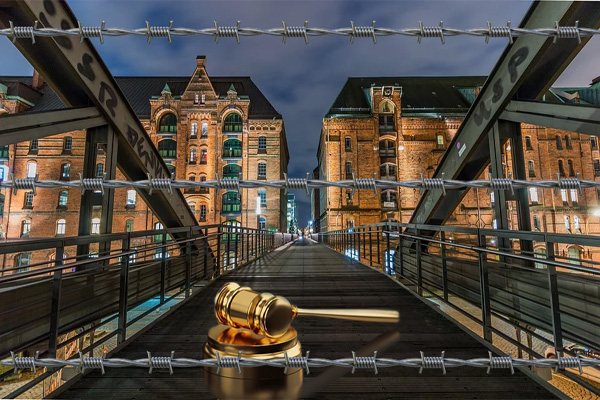Travel Pages
RomWell Travel Advisory
Tips for Canadians Traveling with a Criminal Record
Having a criminal record is never easy, and when you need to travel, your record will make it very hard to do so freely. Canadians have always enjoyed a good relationship with their American neighbors, but after 9/11 happened, the US had to tighten its border security considerably. Even now, many years later, they still continue to tighten their policies and they have become very hard on criminal records.
Many Canadians do not realize the extent of the difficulties presented when traveling with a criminal record. Some people know that the US does not let many types of criminal records across their border, but the border patrol officers can even stop Canadians from traveling to other countries as well.
Here are the details that every Canadian should know about traveling with a criminal record:
 America considers any person that is flying over or flying through their country to be entering the US.
America considers any person that is flying over or flying through their country to be entering the US.
 Most flights out of Canada have to fly through the US to get to any other country.
Most flights out of Canada have to fly through the US to get to any other country.
 Some flights from one point in Canada to another point in Canada have to land or fly into United States airspace.
Some flights from one point in Canada to another point in Canada have to land or fly into United States airspace.
 Canada has an agreement with America's Department of Homeland Security that shares all of Canada's criminal records, both pardoned and unpardoned, with the US.
Canada has an agreement with America's Department of Homeland Security that shares all of Canada's criminal records, both pardoned and unpardoned, with the US.
 The US does not recognize pardoned crimes from Canada.
The US does not recognize pardoned crimes from Canada.
 Anyone who has committed a crime involving moral turpitude will not be allowed entry into the United States.
Anyone who has committed a crime involving moral turpitude will not be allowed entry into the United States.
 Canada does not have a list of crimes involving moral turpitude, so the US border officers have the jurisdiction to decide whether or not a Canadian crime involved moral turpitude.
Canada does not have a list of crimes involving moral turpitude, so the US border officers have the jurisdiction to decide whether or not a Canadian crime involved moral turpitude.
 Canada and the US are currently working together to share more information about criminal activity to boost border security.
Canada and the US are currently working together to share more information about criminal activity to boost border security.
 Canada passed Bill C-42 in March, 2011, which means that if any flight from one Canadian city to another Canadian city that has to land in the US, the pilot, airline and travel agents must share 20 pieces of information about the crew members and all passengers on board the aircraft.
Canada passed Bill C-42 in March, 2011, which means that if any flight from one Canadian city to another Canadian city that has to land in the US, the pilot, airline and travel agents must share 20 pieces of information about the crew members and all passengers on board the aircraft.
 Sometimes a person can travel across the border with a record without being found out. However, the Department of Homeland Security can access the record anytime and once a person is found out, they can face severe consequences, including jail time because the US considers these actions defrauding their country. (Which happens to be on the list of crimes involving moral turpitude.)
Sometimes a person can travel across the border with a record without being found out. However, the Department of Homeland Security can access the record anytime and once a person is found out, they can face severe consequences, including jail time because the US considers these actions defrauding their country. (Which happens to be on the list of crimes involving moral turpitude.)
What do the above points mean for Canadian travelers?
If you are from Canada and you want to travel anywhere in the world, you will most likely have to "enter" the United States to get to your destination. Many Canadians think that if they have received a pardon in Canada, then they will be able to travel freely. Unfortunately, this is not the case. It also doesn't matter what your destination country's policy on criminal records is; the US can still stop Canadians from traveling.
If you have a criminal record and you have been able to travel outside of Canada, the best and safest thing you can do is to apply for a US Entry Waiver. These waivers can be expensive and they take months to receive, but they will allow you to travel freely across the border for a period of 1 to 5 years. Once your waiver expires, you will need to re-apply for another one, which means beginning the process and paying the fees all over again, but if it means being able to take vacations and participate in business trips, then the cost and effort is definitely worth it!
Information provided by: Nancy Collins – Canadian Pardon Services
For more info visit: Pardons Canada



